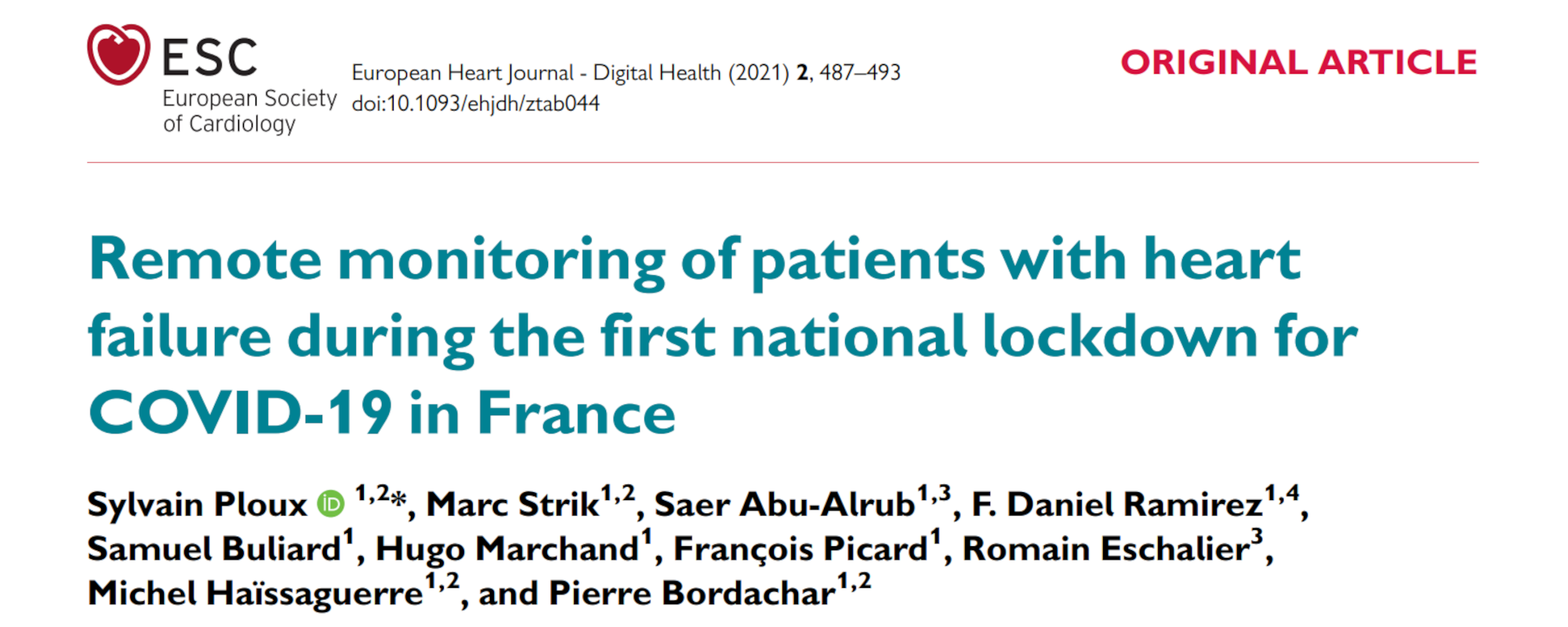Cependant, le confinement a eu un impact réduit sur le court terme, voire nul, sur les paramètres vitaux et l’état clinique des patients insuffisants cardiaques bénéficiant d’une télésurveillance multiparamétrique mise en œuvre par le CHU de Bordeaux, comme le montre l’article Remote monitoring of patients with heart failure during the first national lockdown for COVID-19 in France, publié dans European Heart Journal – Digital Health.
The clinical status of HF patients under multiparametric remote monitoring was minimally affected by lockdown restrictions despite a marked decrease in conventional measures of healthcare use. This strategy, combined with patient education, may mitigate the health risks associated with strict lockdowns for COVID-19.
Cette stratégie de prise en charge a permis une identification précoce et une prise en charge à domicile de la plupart des décompensations cardiaques pendant ce confinement.
Our findings suggest that a combination of home sensors and CIED remote interrogation capabilities represent a method of complying with public health measures while preserving the care and safety of patients with chronic HF. Our experience therefore argues for the benefits of this strategy in this patient population and supports larger studies to confirm our findings.
L’article complet est accessible ici (open access).
